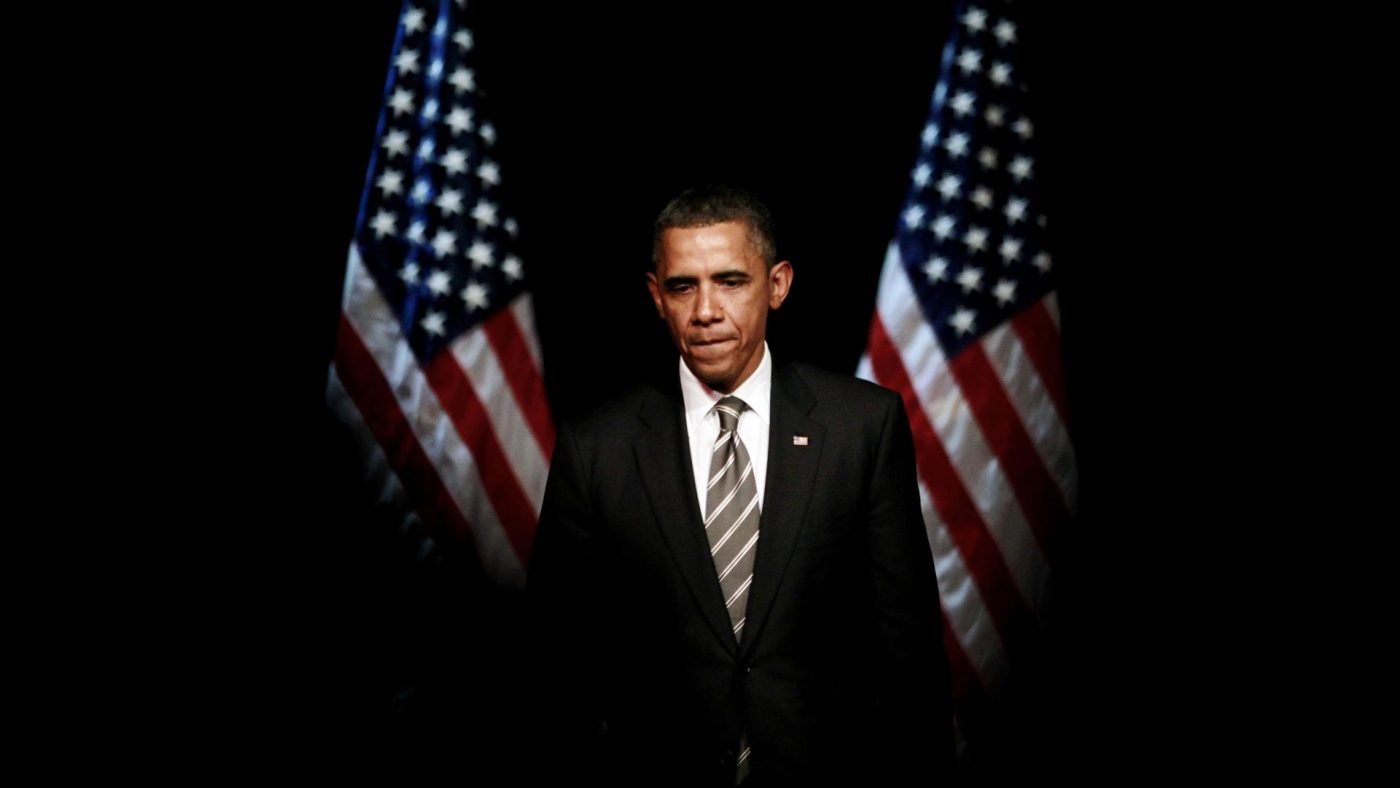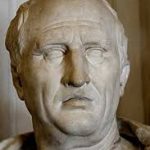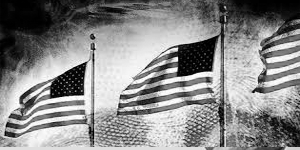You can find the President’s remarks about Trayvon Martin at the bottom of this article.
As you know I recently wrote on the tragedy related to Trayvon Martin and the irrational response from certain Civil Rights leaders in our country. Recently, Barack Obama made some helpful remarks regarding the entire situation as it relates to the outrage in the African-American community as well as the Jury’s decision to acquit George Zimmerman.
At first, I was not positive that the President should even weigh in on this type of situation – as it has nothing to do with his role as President. However, giving it more thought I am glad that the President decided to speak on the issue. As a 34 year old White male, I look at Barack Obama as my President. This is contrastingly different from a 34 year old African-American male who looks at Barack Obama as both his President as well as a symbol. A symbol of how far the African-American community has come in the last 200 years of struggling for Civil Rights. Therefore, it makes sense that the President would feel the need to address the issue.
Racism
Is there racism in this country? Yes. Will there always be racism in this country? Yes. Does that mean we should tolerate racism in this country? No. I would like to think that the aforementioned statements were axiomatic. However, I know they don’t correspond well to some popular cultural theories that exist on the issue of racism. However, I do not want to address those as much as I want to write about racism from a personal perspective.
I would like to think that the issue of racism is improving. I know that my generation is much less racist than my grandfather’s generation was. Don’t get my wrong – racism exists, just not to the extent that it did 60 years ago. As the children of parents grow up in a more accepting culture, they pass those values on to their children (even though they may not have been raised that way). Eventually, racism becomes something less “normal” within a culture as it gradually cycles out.
The reason I mention this is because I believe Barack Obama’s comments towards racism reflect an older worldview on the subject. Yes…the things he mentions still happens, but I also think it happens much less frequent than in the past. Certainly much of the racism today is different than the racism of the past. Racism today seems to be much more subtle (that is, found in the little things we do and say) and less outspoken and part of the norm like it has been in the past.
Racism and George Zimmerman
Is George Zimmerman a racist? I don’t know. Only he knows. Can we conclude he is a racist from his actions? NO! I do not know how I would have reacted if I were in the same situation has Mr. Zimmerman. But, what I do know is this. I would be suspicious of anyone dressed like a “hood” (black or white) walking through a gated community late at night. Is my statement discriminatory? Yes! But all beliefs about people are. As one who use to “dress the part” I can attest the fact that I should not have been trusted.
Does this mean that all people who fit this mold are going to participate in criminal activity? No! But, I still have the right (perhaps even the responsibility), to be vigilant, for the safety of me and my family. For Mr. Zimmerman, the question is did he act the way he did because Trayvon was black, or because he “looked like a thug”? The answer to this question determines whether his action was racist, or discriminatory.
[media url=”http://www.youtube.com/watch?v=MHBdZWbncXI” width=”600″ height=”400″ jwplayer=”controlbar=bottom”]

























C.J. Rich
November 13, 2013The question is not whether George Zimmerman’s actions were racist or discriminatory. The true question is whether his actions were CRIMINAL. This simple question was completely overlooked and overshadowed by the immediate assumption and idea that George Zimmerman was driven by racism or discrimination. Whether George Zimmerman was a racist does not erase the simple fact that he took it upon himself to stalk, follow, and physically chase someone in his neighborhood. Whatever his reasoning here are the facts:
1. George Zimmerman saw someone he thought was a criminal. Like a normal person and good citizen he decided to call the police.
2. After being informed by the police correspondent NOT to follow this person that he thought was a criminal George Zimmerman decided to follow this stranger. This is genuinely where he goes from being a good citizen to a criminal. It went from “I’m a concerned citizen” to “I’m Batman, or Spiderman”, or some other unofficial force, whose responsibility it is to follow someone whom I don’t know but who could possibly be a criminal.
THAT is what is not normal about this.
It is not a question of “was he racist”. What should have been discussed and decided in this case was whether stalking a complete stranger is legal or a criminal act punishable by law. Which moves us on to facts 3 and 4.
3. Because following this stranger against the directive from the police correspondent was not enough…George came to the realization that this stranger and possible criminal was too far away and the only way for him to catch up to him would be to drive to him.
Again, what should have been discussed and decided in this case was whether this was a criminal act. Is it ok to call the police on some one that you think is a criminal? Sure! BUT is it ok to follow that person on foot, by car, and then ultimate confront that person? I don’t think so. That’s called harassment, and that is what should have transformed George Zimmerman’s actions from “Good Citizen”; and un-appointed “neighborhood watch man” to Criminal in the eyes of the American public. George Zimmerman physically, persistently, consciously, purposely, and against direction from the police decided to harass a stranger that he thought was a possible criminal.
Finally
4. After chasing the man that George thought was a criminal he decided to confront this person.
What was NEVER asked was what could possibly empower George to approach someone that he feared to be a criminal? Usually, normal ordinary people, fear criminals. We run from them, hide in our cars or apartments, shutting our doors and windows behind us. We call the police yes, but normally we don’t follow them, and we certainly don’t confront them. What would possibly empower George so much to make him so extra-ordinary to the point that he would approach someone that could possibly be a criminal?
That would be the gun. The gun that George so proudly carried on his person that day empowered him to think that regardless of whether this stranger was a criminal George was prepared to take him; shoot and kill him if prompted. This line of thinking is called premeditated murder.
The fact of this matter is George thought this through. He was not in a state of shock standing his ground when he decided to follow this stranger, he was not in a state of shock or standing his ground when he decided to chase this stranger in his car, he was not in a state of mental shock standing his ground when he decided to get out of his car and confront this complete stranger that he thought was a criminal. George was inarguably in his right mind. He continuously and confidently justified his actions when he ultimately, gun in hand, approached this stranger and (in his mind) possible criminal.
So the question is not whether George was racist for killing this stranger, but was he criminal? Does this Florida Law allow a person to follow a stranger, chase a stranger, confront a stranger, and ultimate shoot a complete stranger if, during that confrontation, he/she feels “endangered”? Basically, does the Florida Law allow one to legally harass someone to death. That is ultimately what the George Zimmerman case was about.
However, diluting this question of the law with whether George was a racist, or discriminatory, ultimately diverted everyone, including the jury, from the realization that what George was doing the minute he decided to follow, with intention to confront and possibly shoot, a complete stranger was criminal and premeditated. Sadly, George Zimmerman was falsely paraded around the court room and the media as a neighborhood hero; an unmasked crusader and extra-ordinary American patriot instead of the criminal that was and ultimately remains today. And in the end a teenage boy is dead without justice because of it.
Eric English
November 17, 2013Thank you Mr. Rich for your comments. I could not agree more. In fact, I had my own rant on the situation on another blog article.
https://www.ericsenglish.com/what-americans-should-learn-from-the-zimmerman-case/
Leo Denzler
December 3, 2023Hello.This post was really remarkable, particularly because I was browsing for thoughts on this matter last Thursday.
cbd vape pen canada
December 5, 2023Hi there, I found your blog via Google while searching for a related topic, your website came up, it looks good. I have bookmarked it in my google bookmarks.